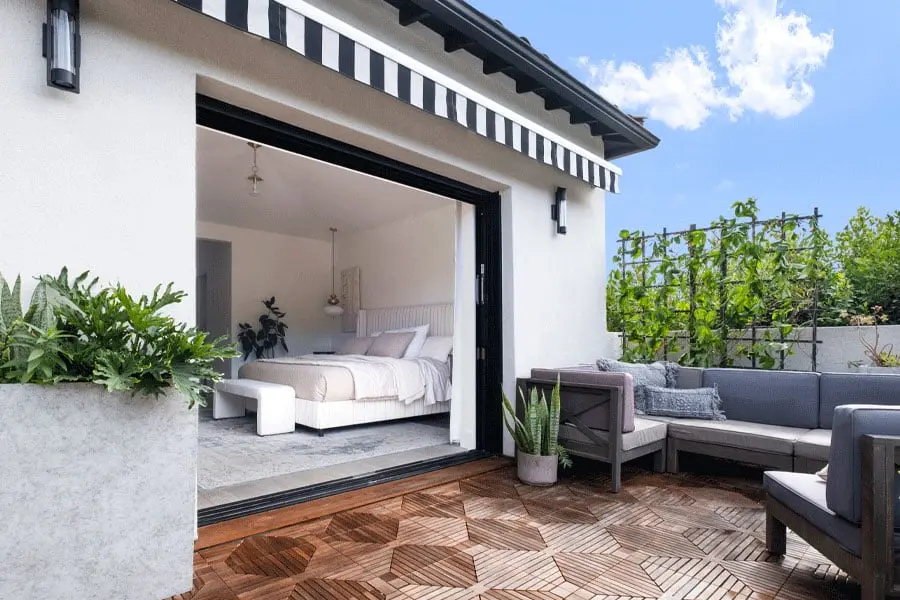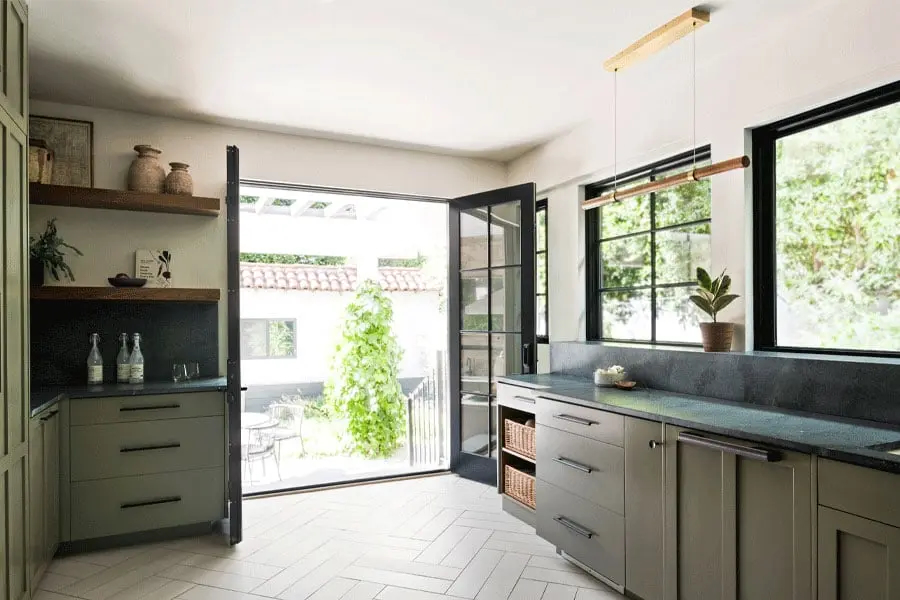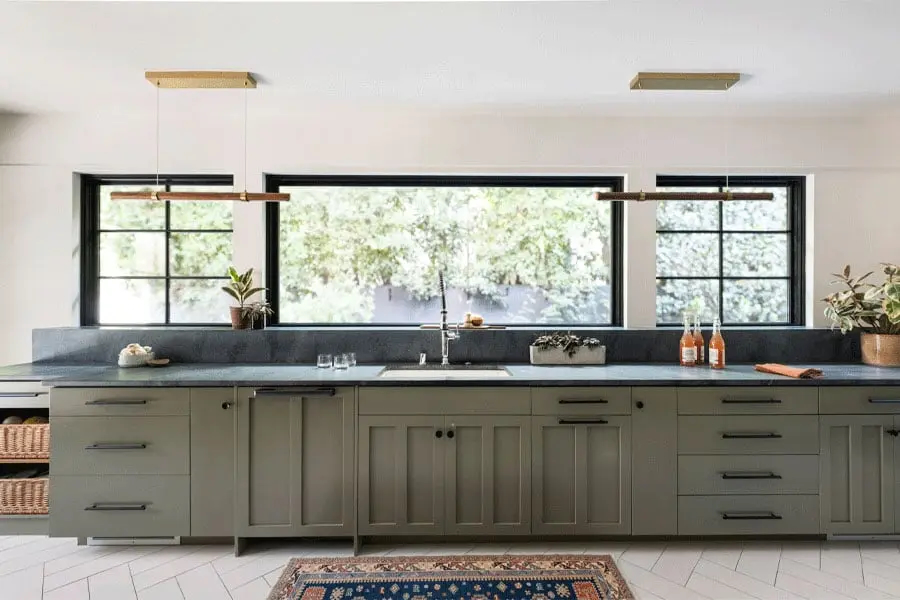When starting a project, most homeowners tend to think about windows and doors from a strictly utilitarian perspective. Where are the doors positioned in the home? How do the windows open and close? That’s certainly important to consider. But what about the functions they serve when not being used? That’s every bit as essential to know! In fact, there’s also a lot of opportunity to utilize these functional features in aesthetically appealing and surprisingly clever ways.
Take for example, Laurie March, an HGTV host personality, who is also a professional remodeler. When she and her husband decided to remodel their Los Angeles home, they gave it careful thought. She didn’t just want the result to be attractive, although that was a consideration. Just as importantly, she wanted to make the most of the home’s natural lighting and make the space healthy and workable for their lifestyles. That took some creative thinking.
She analyzed each of three key factors when deciding what needed to be changed to better fit their needs — tips that you can share with remodeling clients to help them reimagine their own spaces.
1. Know Your Space, Think It Through
The couple had lived in the home for 10 years, so they were very familiar with its pluses and minuses. This provided them insight into what they wanted to change. Because they both work from home, one important priority was keeping their workspace separate from their sleeping space. To do that, they moved the bedrooms to a new second story, while keeping their workspaces downstairs.
Energy efficiency was also top of mind for them. Andersen E-Series windows and patio doors were a great option for maintaining a secure interior air envelope. The available glass options also prevent thermal intrusion with heat-reflecting technology and UV filters.
March even added a balcony to the master bedroom, with the two spaces connected by a MultiGlide™ pocket door. When open, this configuration allows for a seamless connection between interior and exterior spaces. When closed, it still offers an expansive view of the outdoors.
Takeaway: The home should be laid out in a way that separates rooms by function while not creating a closed-in feel.

2. Take Advantage of Natural Light
March was profoundly aware of the advantages of using natural lighting, which improves mood and promotes good sleep. She also notes that too much light can be as problematic as not having enough. Her careful analysis of the direction of light relative to the rooms inside the home and their intended uses informed her remodeling strategy.
She considered where the sun would be at various times throughout the day. Because this was a major remodel, she was able to take advantage of the home’s east-west orientation and change the location of rooms within it to suit what activities would be happening at different times. For example, the master bedroom now faces west, ensuring that the sun doesn’t blaze into it early in the morning and that the couple can instead be awakened to lovely, filtered light.
On the other hand, the breakfast room faces east, so they get the invigorating benefit of morning sunbeams as they’re drinking their coffee and preparing for their day. The living room also faces east so there’s no glare on the television screen at the end of the day as the sun sets in the west.
This strategy, sometimes called “daylighting,” can create a layout that’s maximally livable by using windows to create the right mood and amount of light based on the time of day the space will likely be occupied.
Takeaway: Consider the orientation of the rooms relative to natural light, both to optimize it and to create a comfortable ambience at different times of day.
3. Windows and Doors Are Keys to a Healthy Home
However, March wasn’t simply looking to admit natural light with her choices of windows and doors. She knew that they could do so much more.
March planned the views from her new windows to include greenery in every case. She chose black windows to create an artistic frame around each vista. However, when replacing the windows, she opted to stick with many of the original window locations because they were strategically positioned to allow cross ventilation. Because the home was built at a time when natural airflow was important, she wanted to maintain this feature.
The dual panes in the E-series windows keep exterior noise outside, including sounds from neighbors, traffic, and weather. In a busy environment like L.A., noise abatement is key to maintaining a soothing interior space.
In addition to the MultiGlide door March installed in the master bedroom, she also opted for French doors between her indoor and outdoor kitchens, which could be opened up to provide access to nature and offer more space for entertaining.
Takeaway: Choose windows and doors that provide multiple benefits, including good ventilation and noise abatement, and position them in a way that provides a connection to nature.

More Than Just Windows and Doors
March’s experience with remodeling allowed her to brainstorm ways to utilize new doors and windows, creating a beautiful and functional space that takes advantage of natural light, provides access to outdoor views, and maximizes airflow, while reducing energy consumption. Bringing the outdoors inside through the use of biophilic design that connects homeowners to nature is recommended by the U.S. Environmental Protection Agency as a key to well-being.
Providing these types of insights to remodeling clients and getting their input can help you create unique solutions specifically suited to their needs. Windows and doors aren’t just openings to the outdoors. They provide beauty, functionality, and sustainability — a winning combination of features that make a home truly healthy and livable for years to come.
For more information, visit andersenwindows.com.



